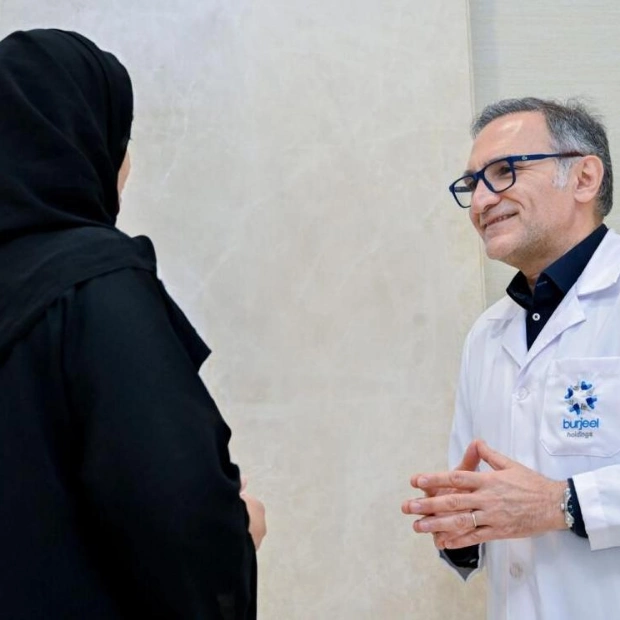Dubai resident Dr Ahmed operates almost 55 hours per week, including practicing as a dentist for seven days on alternate weeks. He elaborated that he dedicates six full days to work in Abu Dhabi, with 8-hour shifts, while additionally working with a clinic in Dubai on alternate Sundays, often during the evenings due to patient demand, leading to extremely busy weekends.
The aforementioned scenario is not unique, as indicated by a Khaleej Times WhatsApp poll involving nearly 9,000 respondents, revealing that most individuals work between 50-60 hours weekly. Specifically, around 5,800 participants reported working up to 60 hours, while over 2,000 indicated a workload of 40-50 hours.
Dr Ahmed, who commutes between Abu Dhabi and Dubai daily, expressed the challenge of limited family time, particularly with his two daughters. His schedule involves assisting his 7-year-old daughter with bedtime upon his return, as his wife, also a healthcare professional, typically rests at that time. Subsequently, he cares for his 7-month-old infant before putting her to sleep, highlighting the necessity for balance, especially after the birth of their baby.
In alignment with the Khaleej Times poll, a survey by communication agency duke+mir ranked the UAE as the world’s second hardest working country, averaging 50.9 hours per week.
Dr Ahmed emphasized the significance of quality time with his children on Sundays, ensuring activities and leisure, while deliberately disconnecting from work and minimizing work hours during their waking moments.
Long working hours could potentially inflict irreversible harm on the human body, according to experts. Noona Nafousi, CEO of Neo Noor, stressed the adverse impact of prolonged stress on physical and mental health, underscoring the need to address chronic overworking.
Despite the prevalence of extended work hours among expatriates in Dubai, some, such as delivery rider Mohammed Noor, experience prolonged work periods as a contractual obligation. This sentiment is corroborated by a study from Business Name Generator, positioning UAE residents at an average of 52.6 weekly hours, placing the country third, following Malta and Bhutan.
Noona advocated for striving to attain work-life harmony, emphasizing the importance of full presence during work hours and complete disengagement during personal time, particularly when habitual long hours are unavoidable.
In stark contrast to the prevailing norm, Mansoor Ali, owner and managing director of Ecogreen Contracting and Landscaping, revealed his average daily work duration at three hours. He attributed this to his belief in delegating responsibilities to his employees and fostering their autonomy, emphasizing the avoidance of exceeding designated working hours.
Dr Gurveen Ranger, a Clinical Psychologist with Sage Clinics, echoed this sentiment, highlighting the diminished productivity resulting from extensive work hours, which compromise cognitive faculties, processing speed, and mental flexibility.
Houri Elmayan, a PR professional, shared her previous demanding schedule of 12-14 hours, leading her to transition away from agency work to establish her own firm, ultimately enabling a substantial improvement in her personal and health-related aspects. Adopting a condensed work schedule allowed her to prioritize self-care, ultimately leading to positive life changes.
Monica Mathijs, founder of Monica Mahi Consulting, attributed the inclination towards extended work hours to 'Eustress', a form of stress stemming from excitement and drive to accomplish tasks. She emphasized the allure of deriving satisfaction and fulfillment from the process, which can lead individuals to perceive working longer hours as rewarding.






